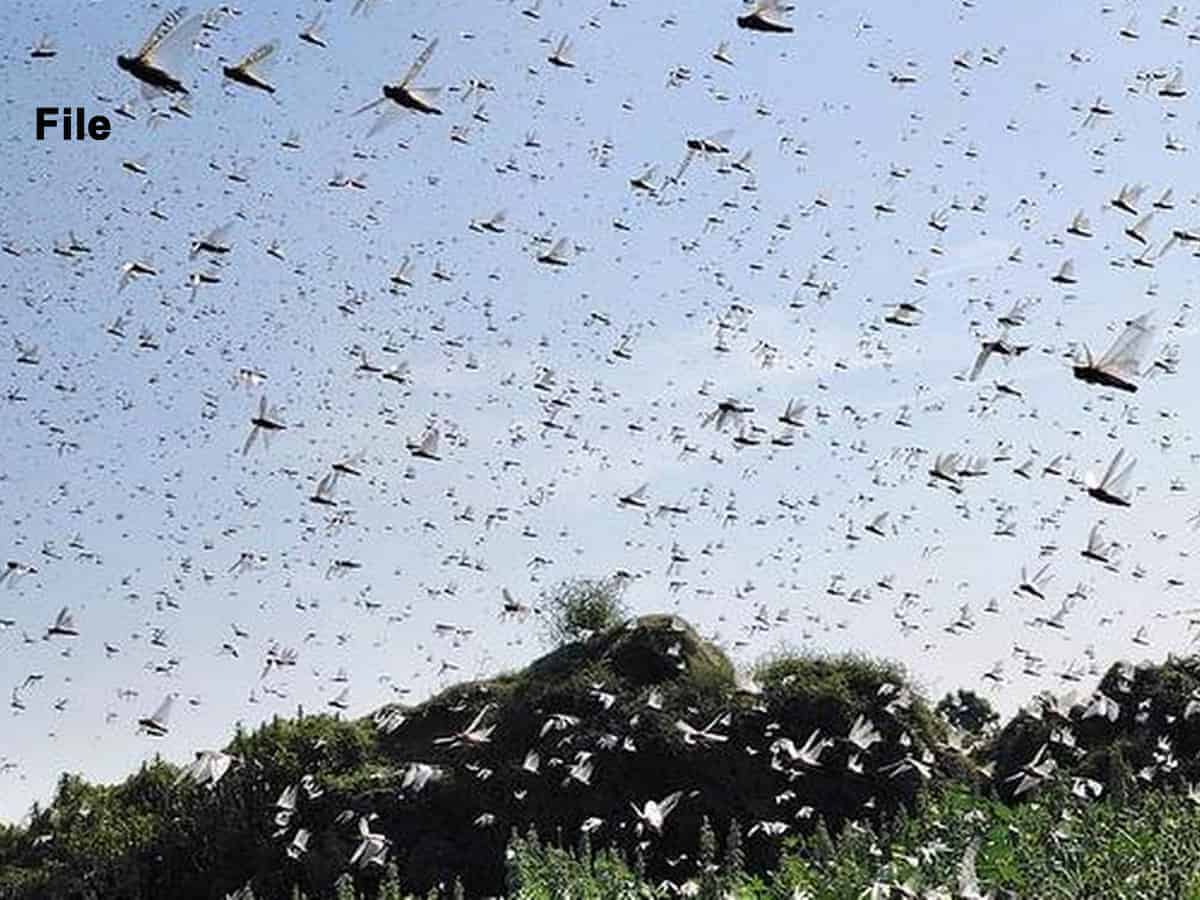New Delhi: The Food and Agriculture Organisation (FAO) of the United Nations has warned India of major locusts attacks in the coming days, following which the government has intensified its efforts to tackle the menace. The Union Ministry of Agriculture and Farmers Welfare said on Sunday that a new dimension has been added by using helicopters in the locust control operations.
Helicopters to spray chemicals
According to information, helicopters were used to spray chemicals in the 65 RD Banda area of Jaisalmer district of Rajasthan, for the first time on Saturday to control the insect swarms.
The FAO, in its July 3 report, had stated that breeding of locusts in the India-Pakistan border areas has already begun. This will create large number of locusts in July and will emerge as a manjor threat by mid-August.
According to the FAO, some of the many swarms of locusts that originated in the spring season at the Indo-Pak border have reached eastern and northern states of India before monsoon and some groups have even reached Nepal now.
According to the forecasts by FAO, with the onset of monsoon, this group of locusts will return to Rajasthan and join other groups of locusts coming from Iran and Pakistan. They are likely to be reunited with a group of locusts coming from the Horn of Africa around mid-July.
The Ministry of Agriculture said in a statement that from April 11 to July 3, the work to control the locust attack was completed in 1,35,207 hectares by Local Circle Offices (LCOs) in Rajasthan, Madhya Pradesh, Punjab, Gujarat, Uttar Pradesh and Haryana.
Locust control operations
Apart from this, locust control operations were carried out on July 3-4 by the LCOs at 25 locations in six districts of Rajasthan — Jaisalmer, Barmer, Bikaner, Jodhpur, Nagaur, and Dausa, and two locations in Uttar Pradesh’s Jhansi district.
According to the Agriculture Ministry, there has been no significant damage to crops in Gujarat, Uttar Pradesh, Madhya Pradesh, Maharashtra, Chhattisgarh, Bihar and Haryana, but in some districts of Rajasthan, some damage to crops has been reported.




